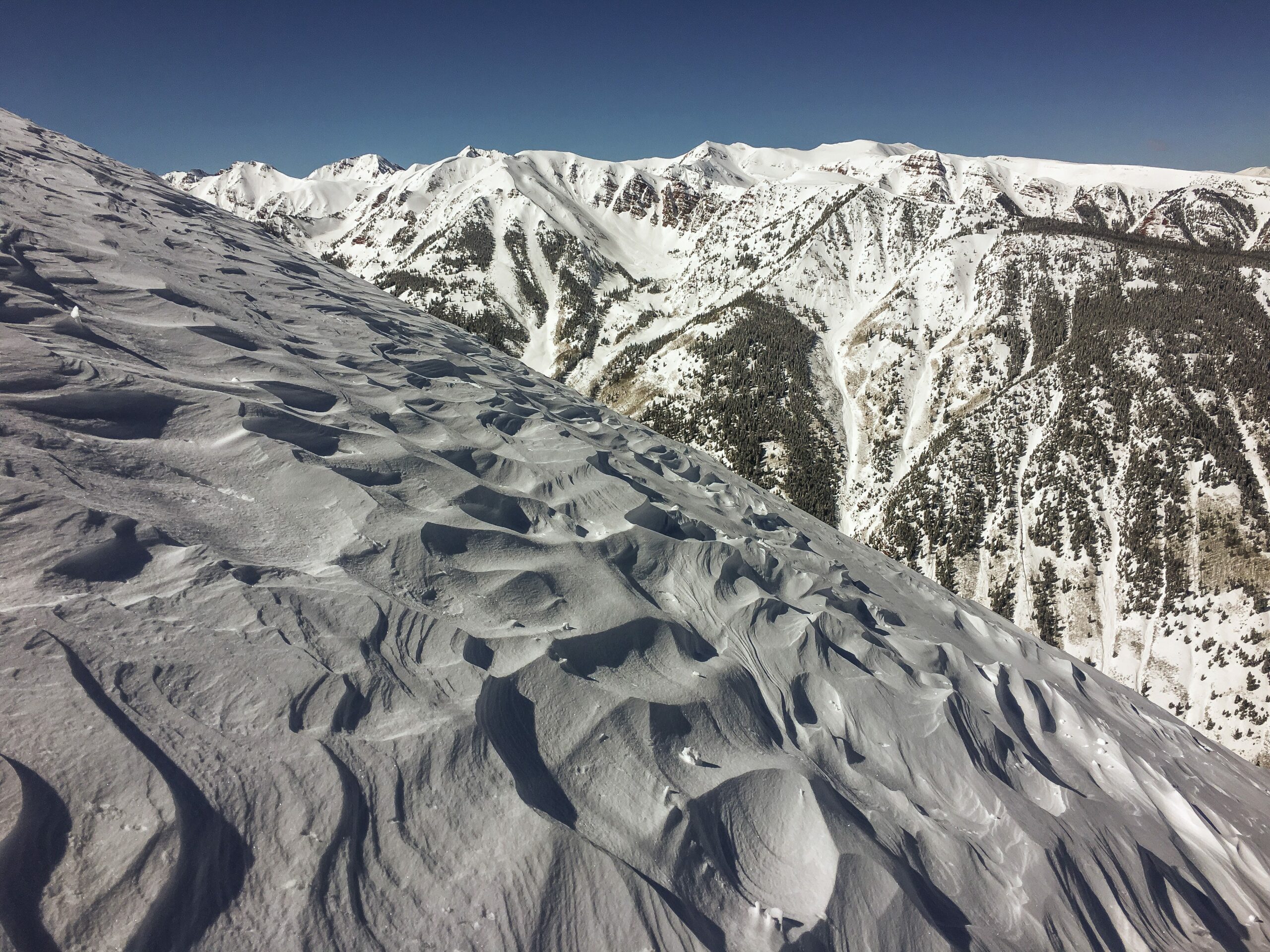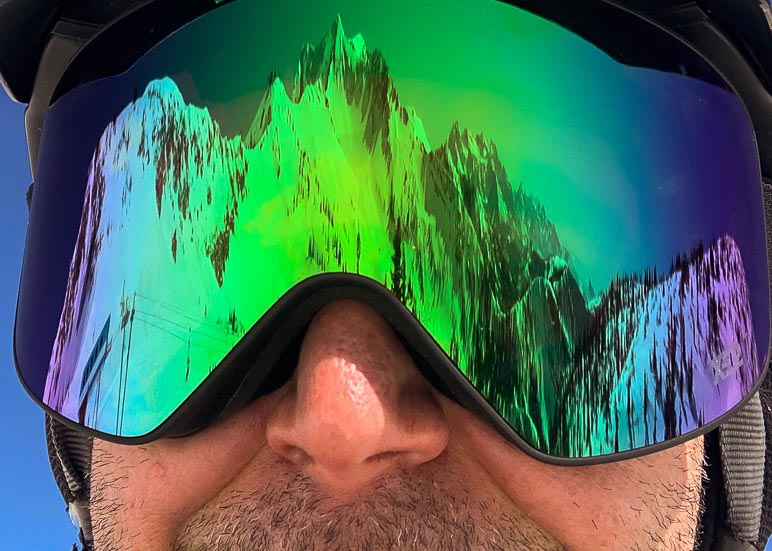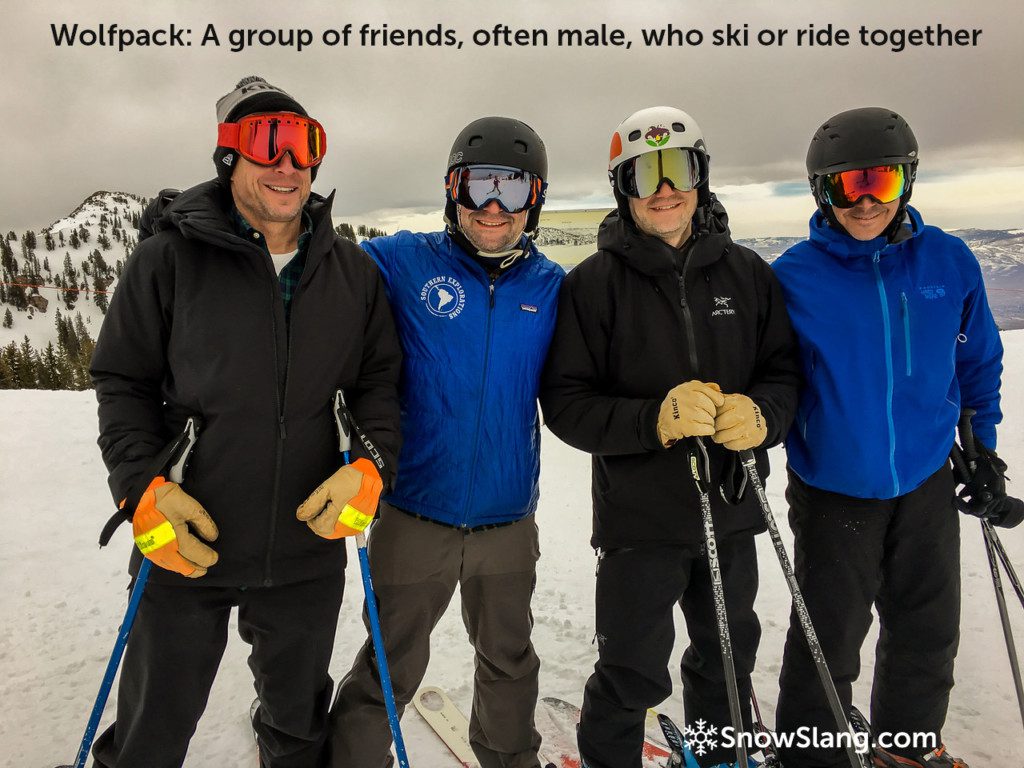
What’s a wolfpack?
A wolfpack is a group of friends, usually guys, who run together. In the context of skiing or snowboarding, these are buddies who roam the mountain with you and hunt cooperatively for fresh powder.
Wolfpack origin
Sometimes spelled wolf pack, this term originates in the natural world with the behavior of actual packs of roving canines who join forces to bring down prey that may be many times their size.
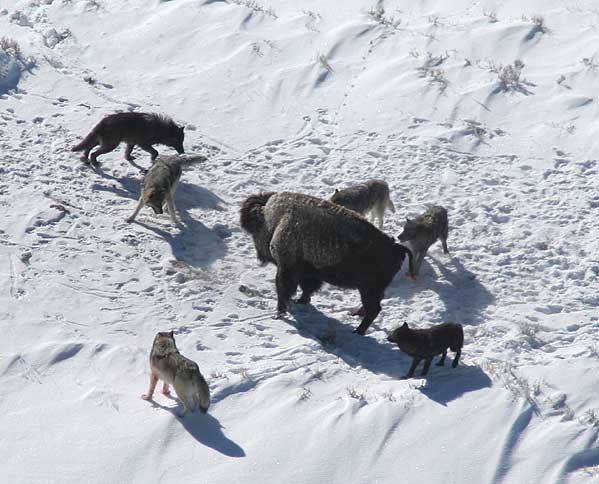
On the Great Plains, before the arrival of guns and horses, Native American hunters adopted the tactics of the wolf pack to kill the bison that supplied them with food, shelter, and clothing. As shown in the George Catlin painting below, hunters would don pelts while hunting, mimicking the behavior of wolves to push the herd off cliffs (buffalo jumps) or into an advantageous position for an attack.
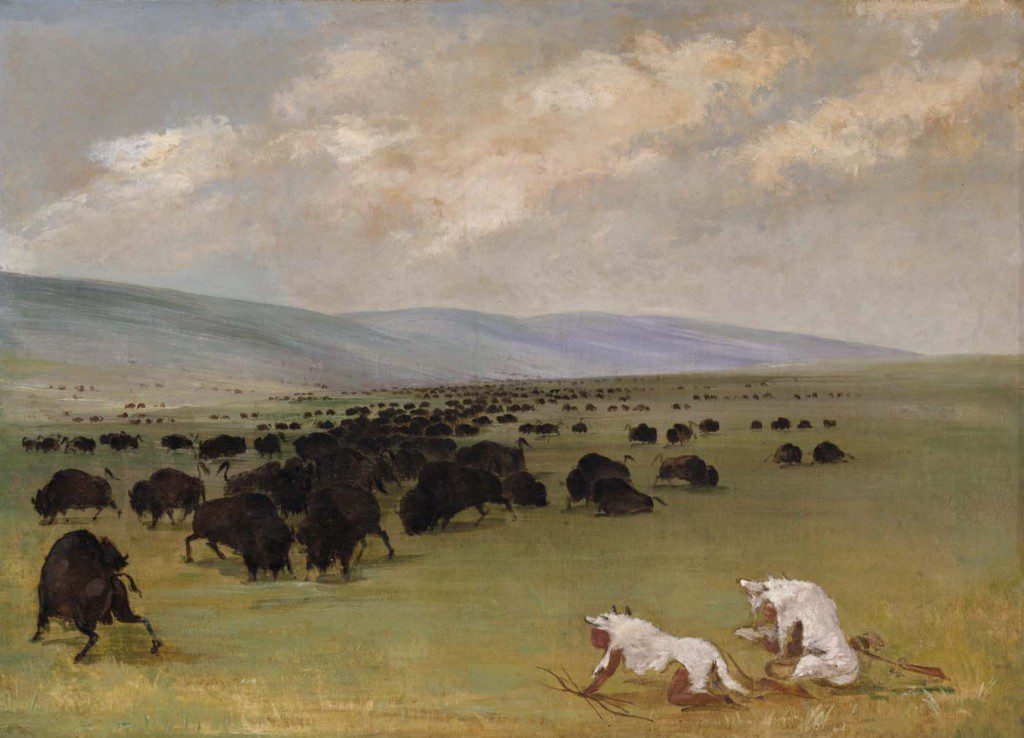
Posse, another word you may hear on the mountain to describe a bunch of guy skiers or boarders, is also rooted in hunting behavior, as in the frontier practice of giving sheriffs the authority to conscript men to enforce the law and track down an outlaw (Posse comitatus).
During World War II, wolfpack was used to describe a naval tactic employed by German submarines against convoys. German Admiral Karl Dönitz, who commanded the Nazi U-boats and succeed Hitler, used the term Rudeltaktik (tactics of a pack) to describe his novel strategy of having multiple submarines simultaneously attack Allied ships in the Battle of the Atlantic. Traditionally, submarines had been more like solitary mountain lions that ambush their prey. Eventually, improved radio technology allowed the Allies to detect the extensive transmissions among U-boats that were needed mount a coordinated attack en masse.
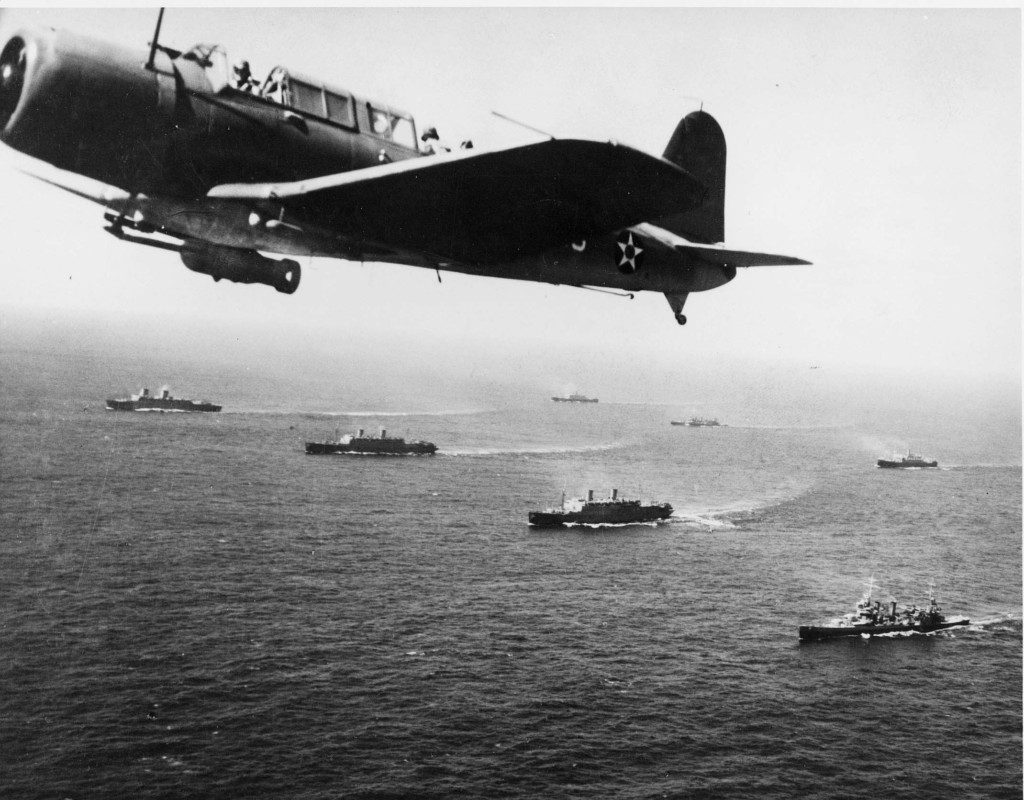
Lone wolves preach “no friends on a powder day”
In contrast to the pack mentality, some skiers and boarders are lone wolves who abide by the saying “no friends on a powder day.” Under this philosophy, one hunts for powder as a solitary predator while the pack is sleeping, sitting in traffic, assembling in parking lot, adjusting their boots, waiting for so-and-so, drinking beer in the lodge, etc.
Operating as a pack or posse requires teamwork and coordination, which can create a need for communications and logistical complications that imperil the mission, just as the radio traffic among German U-boats would sometimes betrayed their position and sent them to the bottom of the Atlantic.

